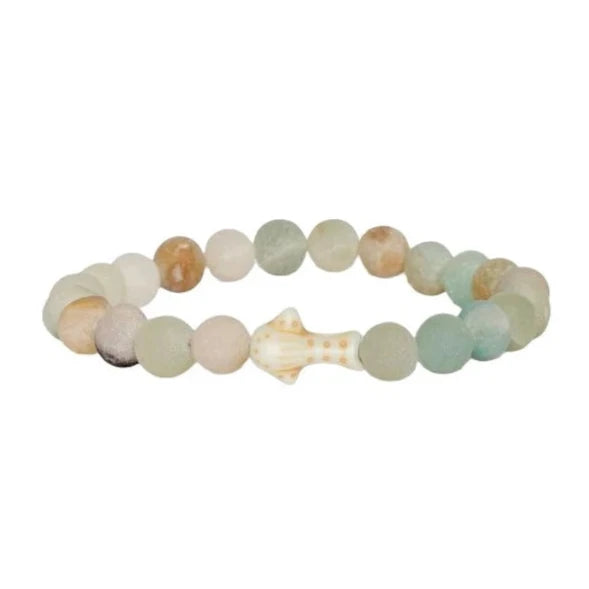Fahlo
Animal Tracking Bracelet - Quest Whale Shark - Sky Stone
Animal Tracking Bracelet - Quest Whale Shark - Sky Stone
Couldn't load pickup availability
Created in partnership with Georgia Aquarium, each whale shark bracelet unlocks an interactive tracking map and directly supports their conservation. Fahlo donates 10% of profits to Georgia Aquarium and thier work protecting whale sharks worldwide.
Meet your whale shark and learn their story. Reveal exclusive stats, photos, and updates along the way. Follow their path on an interactive tracking map.
- Brand: Fahlo
- Stone: Sky Stone
- 10% of profits donated to the Georgia Aquarium
- Sizing: Elastic, one size fits most
- QR code provided to unlock interactive map - compatible on smart phones only.
How does tracking work?
- Tracked via SPOT (Smart Position and Temperature) tag
- This animal’s safety guarded with the Fahlo Protection Ping™
Every Fahlo tracking experience includes the Fahlo Protection Ping™. This indicates each animal’s unique path may be live, delayed, or historical based on required safety protocol in accordance with our nonprofit partners.
While the experience of following an animal’s journey remains the same for you, we work behind the scenes with our partners to ensure this experience is presented in a way that keeps the animals safe, one step or splash at a time.
Why are whale sharks tracked?
We still have much to learn about whale sharks! One of the best, least invasive ways to understand their migration seasonality, and habitat use is through tracking. Learning these patterns allows us to adjust current tourism practices, make better conservation decisions and fight for stricter regulations if necessary. Additionally, tracking migration patterns may allow us to gain more insight into whale shark breeding behaviors about which we currently know very little.
How are whale sharks tracked?
Whale Sharks are tracked with satellite tags. We have used two different forms of satellite tags: fin-mounted and tow-behind tags. Tow-behind tags are attached to the skin of the animal and stay on for a few months before being shed. The fin-mounted tags are also eventually shed as they migrate out of the dorsal fin over time. Both tags record location (latitude/longitude), depth, temperature, and time. This allows us to recreate their movements and learn more about their migratory patterns!
Does tracking harm the whale sharks?
As far as we can observe, neither of our attachment methods are harmful to the whale sharks in any way. There are many tag types and applications, and we use the least invasive, easiest to apply options.
For more information, visit georgiaaquarium.org


